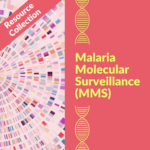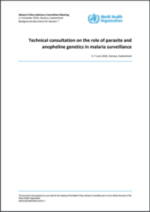DEEP DIVE
Malaria Molecular Surveillance (MMS)
18/07/2024
11/06/2025
This is an active Deep Dive and we welcome your contributions! If you are currently involved in or planning a malaria molecular surveillance project, please contact MESA (mesa@isglobal.org) or add your project to the MESA Track database.
——
Malaria Molecular Surveillance (MMS) – The use of molecular biology approaches, from serology to genotyping to whole genome sequencing, to study malaria parasites and vector populations in order to derive epidemiologically actionable information.
MMS has great potential to improve malaria surveillance efforts. However, there is a considerable gap in transforming this potential and aligning MMS efforts to public health needs to enable country-led analysis and decision-making.
This Deep Dive, categorized by use cases, has an overarching aim to map out who is doing what, where, and how to facilitate coordination and information sharing to bridge the gap between MMS initiatives and their use in informing policy and programmatic decision-making.
|
Several use cases have been identified for MMS:
|
Explore the projects in this Deep Dive as well as the MESA collection of resources on MMS. Share your contributions by writing to mesa@isglobal.org.

Total
projects

Total funding
amount



